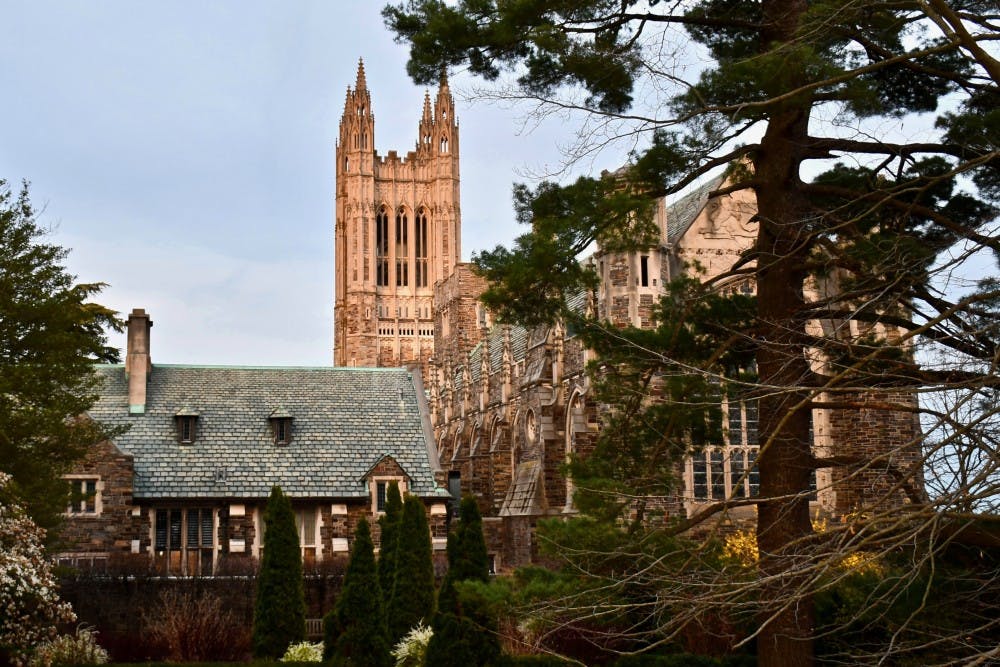The University will increase graduate student fellowship and stipend rates for the coming 2022–2023 academic year by an average of 25 percent to about $40,000 for doctoral candidates, according to a statement released by the Office of Communications on Jan. 25. The change is the University’s largest ever one-year increase in graduate student stipend rates.
The University guarantees funding for all students enrolled as degree-seeking Ph.D. candidates for all years of regular program enrollment. The funding is meant to cover tuition fees and serve as a base stipend to cover estimated living expenses.
“Our graduate students are engaged in important learning and research, and we do not want promising scholars in any discipline to decide not to pursue graduate study because of their personal financial situation,” Dean of the Graduate School Cole M. Crittenden said. “This is important in all cases, but it is especially important for students who may be the first in their family to attend college as well as for graduate students who may have dependents.”
For the 2022–2023 academic year, the 10-month stipend rate will increase for those in all four of the school’s divisions: the natural sciences, engineering, humanities, and social sciences. For those in the natural sciences and engineering, the Assistantship in Research (AR) stipend will increase from $31,720 to $40,000, the Assistantship in Instruction (AI) stipend will increase from $34,800 to $42,000, and the University First-Year Fellowship will increase from $31,720 to $40,000.
For those in the humanities and social sciences, the Assistantship in Instruction (AI) stipend will increase from $34,800 to $42,000 and the University Fellowship will increase from $30,475 to $38,000.
The increase was recommended by the Priorities Committee and approved by the Board of Trustees in a meeting this past week. It will be funded through a combination of sources, including central budget funds supported by the University’s endowment.
“Stipends for graduate students have increased at an average annual rate of 3 percent for more than 20 years at Princeton,” Crittenden said in an email sent to graduate students obtained by The Daily Princetonian. The stipend for the upcoming academic year will have an almost 20 percent higher increase as compared to the previous year.
“These increases in stipend rates will ensure that Princeton continues to attract and retain the very best candidates for graduate study, regardless of background,” Crittenden said.

The University’s new stipends are comparable to other universities like Stanford University, where a Graduate Fellowship in Science and Engineering — a stipend available by nomination — offers an annual $49,640.
At Yale University, Ph.D. students receive a fellowship of $45,700 and a 12-month stipend of a minimum of $33,600 for 2021–2022.
Members of Princeton’s Graduate Student Union (PGSU) voiced support for the increase, but also speculated about what factors may have possibly pushed the University to make the change.
“This is of course great news as the cost of living in Princeton is very high, and the additional support will definitely help grad students cover our expenses,” Tim Alberdingk Thijm GS said in an email to the ‘Prince.’ “I think the timing of the decision is also very notable: Columbia’s student worker union just won a tentative agreement only two weeks ago and boosted their own stipends into the 40k range, plus all the other union activity at Harvard, NYU, and MIT in the last year.”

Gaby Nair GS expressed a similar sentiment in an email to the ‘Prince.’
“This announcement comes during graduate student recruitment season, at a time when people are deciding where to go to graduate school — and Princeton clearly sees that it couldn't compete with unionized workplaces unless they raised our pay,” Nair said.
At Columbia University, the Student Workers of Columbia (SWC) union spent 10 weeks on strike while in pursuit of higher wages to accommodate the cost of living in New York City and improved health benefits. On Jan. 6, the SWC and Columbia University came to a tentative agreement to implement retroactive compensation increases of a minimum of four percent.
Graduate students at Harvard University have also recently negotiated for higher compensation, culminating with a three-day strike in October 2021.
Lia Opperman is an Assistant News Editor who often covers University affairs, student life, and local news. She can be reached at liaopperman@princeton.edu, on Instagram @liamariaaaa, or on Twitter @oppermanlia.
Isabel Yip is an Assistant News Editor who typically covers University Affairs and student life. She can be reached at isabelyip@princeton.edu or on Instagram at @isaayip.








